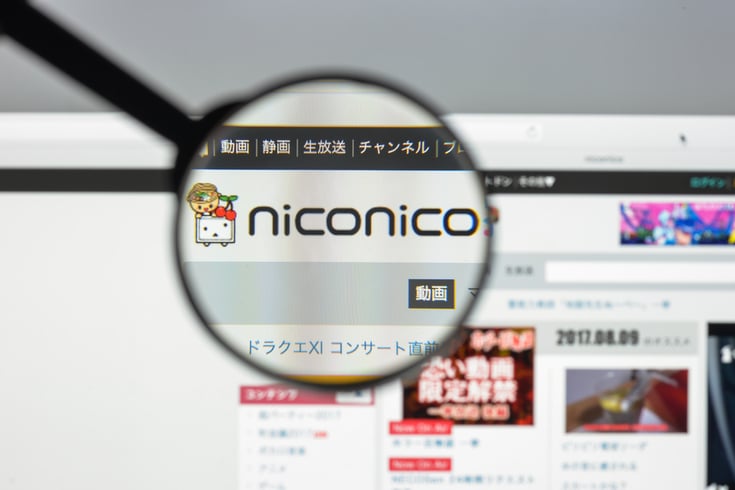Does 'Singing Cover Videos on Twitter' Violate the Japanese Copyright Law?

Launched in 2006, the social networking service (SNS) Twitter is featured by its short, real-time communication. It also allows for video uploads, with a maximum length of 140 seconds, which is not included in the tweet word limit.
The 140-second time limit has become an appealing feature that encourages casual enjoyment, leading to an increase in the number of people uploading singing videos on Twitter. But does uploading singing videos on Twitter infringe on copyright law?
Video Posting and Copyright Law

When posting videos, the key point in relation to copyright law is whether or not you have a contract with a copyright management organization like JASRAC.
What is JASRAC?
The official name of JASRAC is “Japanese Society for Rights of Authors, Composers and Publishers”. As the English name suggests, it is an organization that receives copyright management commissions from domestic authors, composers, music publishers, and other rights holders, and has contracts with foreign copyright management organizations to manage their repertoire.
JASRAC has digitized a vast number of managed songs and serves as a window for users to handle copyright procedures for music used in performances, broadcasts, recordings, and online distribution. It regularly distributes usage fees to the authors, composers, and music publishers who have entrusted their rights.
YouTube and JASRAC
YouTube has a comprehensive contract with JASRAC, so when posting on YouTube, you can use songs and lyrics managed by JASRAC without infringing on copyright law in principle. This is because YouTube takes over the payment of music usage fees that individual users would normally have to pay to JASRAC.
You can check whether a song is managed by searching the “JASRAC Work Database Search Service”.
However, only the copyrights of songs and lyrics are generally managed, and JASRAC does not manage neighboring rights. Therefore, you need to obtain permission from other rights holders such as record producers. We will discuss this issue later.
Therefore, regarding neighboring rights, you need to negotiate individually and obtain permission, but in reality, it is difficult, so when posting a singing video on YouTube, it is better to search for off-vocal sound sources or secondary creative off-vocal sound sources that have been permitted to use, or create your own sound source.
Twitter and JASRAC
Videos of people singing that flow on Twitter’s timeline are mainly posted in one of the following ways:
- Post the URL of a singing video posted on YouTube on Twitter
- Use Twitter’s video posting feature to upload a singing video
In the case of method 1, it does not violate copyright law because YouTube has a comprehensive contract with JASRAC.
In the case of method 2, if you perform a song managed by JASRAC, it violates copyright law because Twitter does not have a comprehensive contract with JASRAC.
According to JASRAC,
In the following services that have a usage license agreement with JASRAC, general users can upload UGC (videos and lyrics) using JASRAC-managed songs without individually applying for a usage license to JASRAC.
“List of UGC services that have a usage license agreement”
There is a list of “services where you can upload videos containing JASRAC-managed songs”, which includes not only YouTube but also many services such as Instagram, Twitch, TikTok, and LineLive, but Twitter is not included.
Therefore, normally, you should use the method of “posting the URL of a singing video posted on YouTube on Twitter”.
Personal Contract with JASRAC

Uploading a video of yourself singing on Twitter using its video posting feature could potentially violate copyright laws. However, it’s not entirely impossible to do so. By entering into a personal contract with JASRAC, you can upload JASRAC-managed songs to Twitter without infringing on any rights.
Procedure for Personal Contract
When an individual posts a video on Twitter, it falls under “interactive distribution”. Since there is no profit made from the video post, it is considered “non-commercial” and “personal”. Also, since images posted on Twitter cannot be downloaded, it is considered “streaming”.
According to JASRAC’s “Quick Reference Table of Usage Fees for Comprehensive Licensing Contracts in the Case of Non-Commercial Distribution”, in the above case, the fees are as follows:
150 yen per song per month, 1200 yen per song per year, and a flat rate of 10,000 yen per year for 9 or more songs.
Since the annual fee is a flat rate of 10,000 yen, which is not an amount that an individual cannot afford, it might be worth considering entering into a personal contract with JASRAC, hoping for more views, rather than just linking to YouTube.
It should be noted that the procedure for distributing on the Internet (interactive distribution) is done on a per-account basis, and the procedure is as follows:
- Apply through J-TAKT (Online License Window)
- Mail the printed basic contract
- Submit a service overview document (a document that details the content of the site and how the music will be used, such as a proposal)
- Receive a license notification email from JASRAC
- After starting to use the service, submit a report on the songs used and income for the calculation of usage fees and the creation of distribution data for rights holders
This process is not particularly troublesome.
There are examples of famous artists using Twitter’s video feature to perform cover songs, and they have personal contracts with JASRAC.
Personal Contract with JASRAC and Neighboring Rights
Even if you enter into a personal contract with JASRAC, the issue of neighboring rights remains.
If you use a commercially available CD or downloaded music, in addition to copyright, you need to obtain permission for neighboring rights (the rights of music producers and artists). As mentioned earlier, JASRAC does not manage neighboring rights, so you need to obtain permission from the rights holder separately.
For clarity, the “usable music sources” are:
- Music you have performed yourself
- Songs you have sung to your own performance
- MIDI you have created yourself
- Music for which the site operator has obtained permission from the record company, etc.
And the “music sources that require permission from the record producer, etc.” are:
- CD music and downloaded music for which the record company, etc. has not obtained permission
- Accompaniment music for which the karaoke operator has not obtained permission
- Artist’s promotional videos, TV programs, movies
Also, if you arrange a song (add translated lyrics, make a parody), you need to obtain permission for the arrangement (translated lyrics, parody), but JASRAC does not manage the rights related to arrangement (translated lyrics, parody), so you need to obtain permission from the rights holder of the song you are using (lyricist, composer, music publisher, etc.).
Summary: Potential Copyright Infringement of Singing Cover Songs on Twitter

Posting singing videos directly on Twitter is popular due to the convenience of being able to watch videos with just a click of the play button, without following external links. However, unless you are using a song you have created yourself or a classical piece whose copyright has expired, it constitutes copyright infringement.
Given the vast number of accounts on Twitter, strict enforcement is virtually impossible, which is why it is often overlooked. However, there is no guarantee that this situation will continue indefinitely.
It would be wise to either post a link to YouTube or enter into a personal contract with JASRAC (Japanese Society for Rights of Authors, Composers and Publishers).
Introduction to Our Firm’s Measures
Monolith Law Office is a legal office with high expertise in both IT, particularly the internet, and law. In recent years, intellectual property rights surrounding copyrights have been attracting attention, and the need for legal checks is increasingly growing. Our firm provides solutions related to intellectual property.
Category: Internet





















